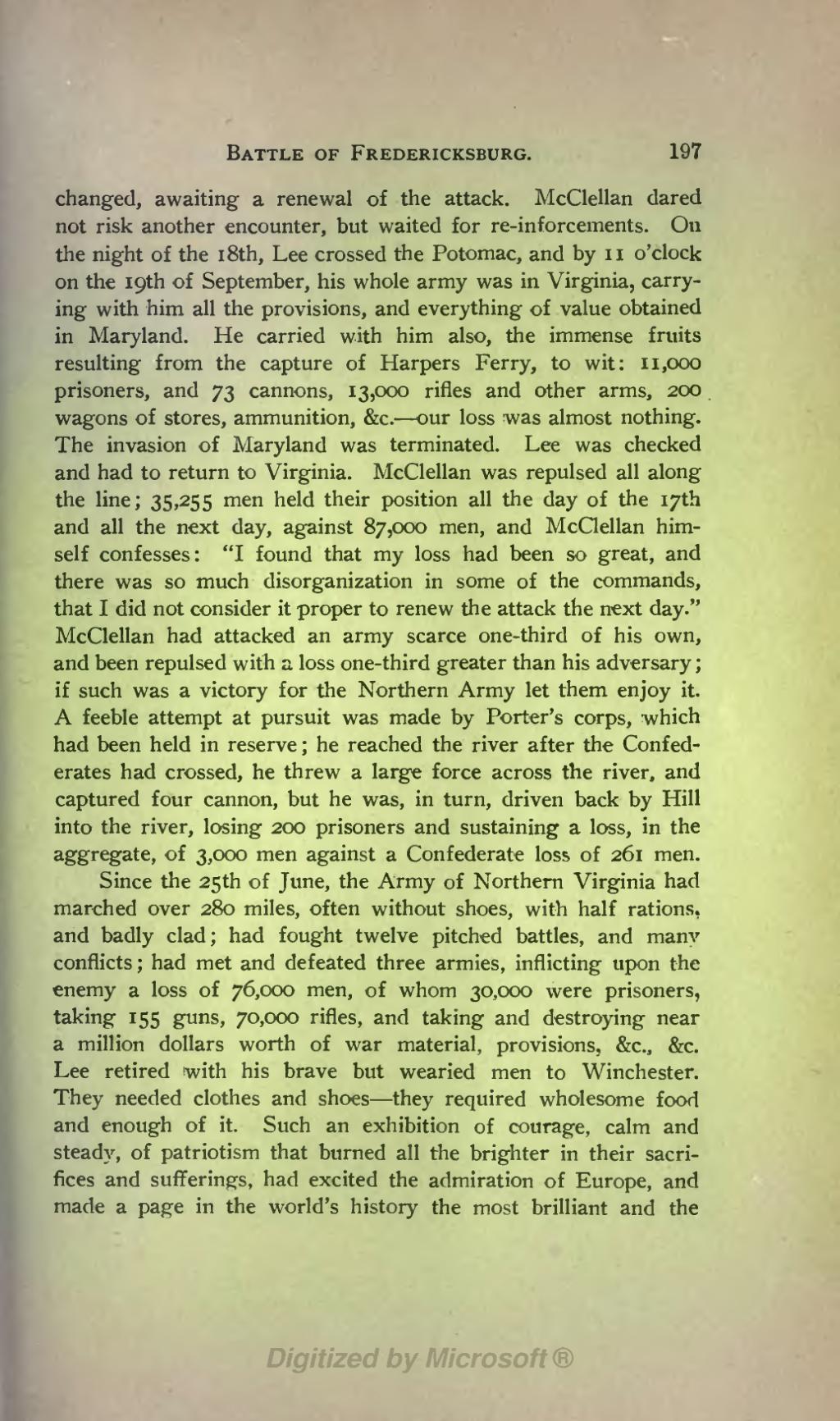changed, awaiting a renewal of the attack. McClellan dared not risk another encounter, but waited for re-inforcements. On the night of the 18th, Lee crossed the Potomac, and by 11 o'clock on the 19th of September, his whole army was in Virginia, carrying with him all the provisions, and everything of value obtained in Maryland. He carried with him also, the immense fruits resulting from the capture of Harpers Ferry, to wit: 11,000 prisoners, and 73 cannons, 13,000 rifles and other arms, 200 wagons of stores, ammunition, &c.—our loss was almost nothing. The invasion of Maryland was terminated. Lee was checked and had to return to Virginia. McClellan was repulsed all along the line; 35,255 men held their position all the day of the 17th and all the next day, against 87,000 men, and McClellan himself confesses: "I found that my loss had been so great, and there was so much disorganization in some of the commands, that I did not consider it proper to renew the attack the next day." McClellan had attacked an army scarce one-third of his own, and been repulsed with a loss one-third greater than his adversary; if such was a victory for the Northern Army let them enjoy it. A feeble attempt at pursuit was made by Porter's corps, which had been held in reserve; he reached the river after the Confederates had crossed, he threw a large force across the river, and captured four cannon, but he was, in turn, driven back by Hill into the river, losing 200 prisoners and sustaining a loss, in the aggregate, of 3,000 men against a Confederate loss of 261 men.
Since the 25th of June, the Army of Northern Virginia had marched over 280 miles, often without shoes, with half rations, and badly clad; had fought twelve pitched battles, and many conflicts; had met and defeated three armies, inflicting upon the enemy a loss of 76,000 men, of whom 30,000 were prisoners, taking 155 guns, 70,000 rifles, and taking and destroying near a million dollars worth of war material, provisions, &c., &c. Lee retired with his brave but wearied men to Winchester. They needed clothes and shoes—they required wholesome food and enough of it. Such an exhibition of courage, calm and steady, of patriotism that burned all the brighter in their sacrifices and sufferings, had excited the admiration of Europe, and made a page in the world's history the most brilliant and the
